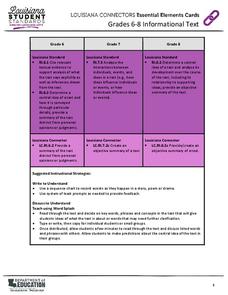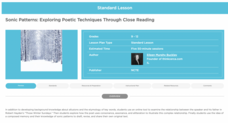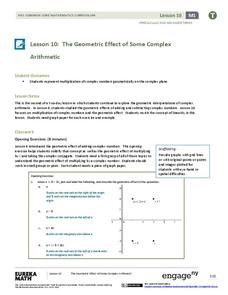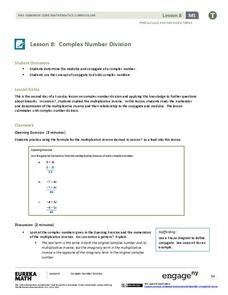Channel Islands Film
Cache: Lesson Plan 4 - Grades 4-5
After viewing the West of the West's documentary Cache, individuals craft either a newspaper article chronicling the discovery of the cache on San Nicolas Island, a historical narrative of the placement of the cache in the cliff side, or...
Louisiana Department of Education
Essential Elements Cards
Use essential elements cards to help lesson plan! Each card contains an informational text common core standard for grade levels six through eight and suggestions for activities and supports. Cards address skills such as citing textual...
Colorado Education Initiative
Grade 6-8 Decision Making
Thoughtful decisions versus everyday decisions. Impulsive decisions versus thoughtful decisions. The decisions tweens must make become more and more complex as they age. Help them develop the skills they need to make thoughtful,...
Health Smart Virginia
Be Smart with Smartphones (and Screens)
Would you rather have a broken phone or a broken bone? This very engaging question launches a discussion about the smart use of smartphones and screens. Young scholars watch a series of videos, complete worksheets, and engage in...
Education Foundation of Sarasota County
Self-Calming Strategies to Manage Emotions
Tweens and teens learn coping skills to help manage strong emotions such as anger, fear, and sadness with a lesson that asks them to generate a list of self-calming strategies they use and to consider the suggestions in a short video and...
EngageNY
Solutions to Polynomial Equations
Take a step back to Algebra II. The first lesson in a series of 23 asks scholars to remember working with quadratic equations with complex solutions. Pupils apply polynomial identities to complex numbers and work examples that show how...
ReadWriteThink
Sonic Patterns: Exploring Poetic Techniques Through Close Reading
Robert Hayden's poem "Those Winter Sundays" serves as the anchor text in a five-part activity that takes the mystery out of poetry analysis by modeling explicit strategies for pupils to employ to conduct a close reading of a poem. After...
EngageNY
The Geometric Effect of Some Complex Arithmetic 2
The 10th lesson in a series of 32, continues with the geometry of arithmetic of complex numbers focusing on multiplication. Class members find the effects of multiplying a complex number by a real number, an imaginary number, and another...
EngageNY
Getting a Handle on New Transformations 2
Use 2x2 matrices to move along a line. The second day of a two-day lesson is the 28th installment in a 32-part unit. Pupils work together to create and solve systems of equations that will map a transformation to a given...
EngageNY
Equations for Lines Using Normal Segments
Describing a line using an algebraic equation is an essential skill in mathematics. The previous instructional activity in the series challenged learners to determine if segments are perpendicular with a formula. Now they use the...
EngageNY
Perimeter and Area of Polygonal Regions in the Cartesian Plane
How many sides does that polygon have? Building directly from lesson number eight in this series, learners now find the area and perimeter of any polygon on the coordinate plane. They decompose the polygons into triangles and use Green's...
EngageNY
The Remainder Theorem
Time to put it all together! Building on the concepts learned in the previous lessons in this series, learners apply the Remainder Theorem to finding zeros of a polynomial function. They graph from a function and write a function from...
EngageNY
Using Sample Data to Estimate a Population Characteristic
How many of the pupils at your school think selling soda would be a good idea? Show learners how to develop a study to answer questions like these! The lesson explores the meaning of a population versus a sample and how to interpret the...
EngageNY
Getting a Handle on New Transformations 1
In the first of a two-day lesson on transformations with matrix notation the class transforms the unit square using general transformations, then calculates the area of the transformed image. They discover it is the same as finding...
EngageNY
Informally Fitting a Line
Discover how trend lines can be useful in understanding relationships between variables with a lesson that covers how to informally fit a trend line to model a relationship given in a scatter plot. Scholars use the trend line to make...
EngageNY
Rational Numbers on the Number Line
Individuals learn how to plot rational numbers on the number line in the sixth instructional activity of a 21-part module. They identify appropriate units and determine opposites of rational numbers.
EngageNY
Factoring Expressions
Factor in an informative resource when teaching about factoring. The 11th activity in a 36-part module shows pupils how to factor algebraic expressions by applying the distributive property. Some of the problems involve expressions with...
Encyclopedia Britannica
Meta-Study: Political Brains
Are there differences in the brains of liberals and conservatives? That is the question young political scientists are challenged to answer. Class members examine studies, consider how the results are presented, and how the studies were...
EngageNY
Successive Differences in Polynomials
Don't give your classes the third degree when working with polynomials! Teach them to recognize the successive differences and identify the degree of the polynomial. The activity leads learners through a process to develop an...
EngageNY
Properties of Logarithms
Log the resource on logarithms for future use. Learners review and explore properties of logarithms and solve base 10 exponential equations in the 12th installment of a 35-part module. An emphasis on theoretical definitions and...
EngageNY
Complex Number Division 2
Individuals learn to divide and conquer complex numbers with a little help from moduli and conjugates. In the second lesson plan on complex number division, the class takes a closer look at the numerator and denominator of the...
EngageNY
Proving the Area of a Disk
Using a similar process from the first lesson in the series of finding area approximations, a measurement resource develops the proof of the area of a circle. The problem set contains a derivation of the proof of the circumference...
EngageNY
Putting It All Together
Shuffle 'em up and deal! Learners practice operations with polynomials using cards they pass around the room. The activity works with pairs or individuals, so it offers great flexibility. This is the fifth installment in a series of 42...
EngageNY
Radicals and Conjugates
Make the irrational rational again! Continuing the theme from previous lessons in the series, the lesson relates the polynomial identity difference of squares to conjugates. Learners develop the idea of a conjugate through analysis and...























